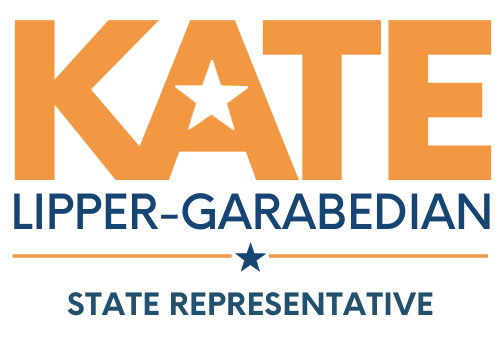State Representative Lipper-Garabedian Files and Advocates for Legislation Focused on Affordability for Massachusetts Residents
August 11th – In the 2023-2024 legislative session, State Representative Kate LipperGarabedian (D-Melrose) has filed several priority bills focused on affordability, including in the areas of student loan debt, senior property tax programs, renters’ housing stability, financial planning, and cost of living adjustments for veterans. These pieces of proposed legislation are in addition to broader tax reform efforts that both the House and Senate have passed in recent months. Since filing these bills, Representative Lipper-Garabedian has advocated and testified before legislative committees on these pieces of legislation in an effort to increase affordability not only in the 32nd Middlesex District but across the Commonwealth.
“A multifaceted approach to affordability is essential for ensuring economic mobility and stability throughout Massachusetts,” said Representative Lipper-Garabedian. “Massachusetts is a great but expensive place to live. Given this, I look for opportunities each legislative session to propose statutory updates and policies that will support the financial health of Massachusetts residents and their families. Some of these proposals – like the bill to create a state curriculum to aid seniors with financial decision making in retirement – are the result of hearing from and working directly with my constituents as they have navigated this process. Others are the product of partnerships with local and regional experts including the Melrose Veterans Services Advisory Board.”
The following bills are among Representative Lipper-Garabedian’s legislative portfolio for the 2023-2024 session:
H.638, An Act supporting seniors’ financial stability, would direct the State Treasurer to develop a model curriculum in consultation with the Executive Office of Elder Affairs, the Massachusetts Councils on Aging, and AARP Massachusetts. “Retiring residents face a myriad and often overwhelming number of financial decisions,” said Representative Lipper-Garabedian. “The Treasurer has developed a series of financial literacy resources for other populations, including our youth. The growing senior population in Massachusetts warrants similar support.”
H.2750, An Act updating and expanding the renter’s income tax deduction, would amend the tax code to double the deduction a renter is able to claim on a tax return from $3000 to $6000 and further create a rental tax credit for qualifying, lower-income taxpayers. “In one of the most expensive states to live for renters, the bill offers an additional lever in supporting the financial stability of this significant portion of the Commonwealth’s residents,” said Representative Lipper-Garabedian.
H.2872, An Act authorizing the establishment of a means tested senior citizen property tax exemption, would allow municipalities to establish property tax exemption programs with higher income and asset limits without the burdensome process of seeking State approval. “It is of high importance that local governments are granted this authority by the State,” said Representative Lipper-Garabedian. “The alternative is a lengthy and multistage process that delays implementation of property relief programs and thus disadvantages senior citizens.”
H.2873, An Act encouraging employer student loan repayment, would establish a tax exemption for Massachusetts employers that assist their employees who reside in Massachusetts with paying off student loan debt. The bill sets the annual exemption at $2000 per employee, helping graduates with college affordability and employers with workforce recruitment and retention. “The broader economic effects of student loan debt are well documented. Numerous studies show the adverse consequences of debt on indicators from homeownership among young adults to small-business formation, family planning, and overall financial growth and security,” said Representative Lipper-Garabedian. “Student loan debt has a disproportionate effect on and can exacerbate wealth gaps of economically vulnerable populations – veterans, seniors, female heads of household, first-generation college students, and communities of color.”
H.3045, An Act prohibiting license revocation for student loan default, would repeal the current state law that denies education loan defaulters state-issued professional licenses and certifications because of their default status. “This creates a perverse catch 22 by further hindering the ability to earn a living and therefore pay down student debt,” stated Representative Lipper-Garabedian. “There is broad recognition of the affordability crisis in higher education. More than half of all American students go into debt while pursuing postsecondary education – including yours truly. Repealing our license suspension for default law is the right, sensible policy.”
H.3521, An Act relative to COLA adjustments for veteran benefits, requires all property tax exemptions, including those for which veterans are eligible for, to be adjusted on an annual basis in accordance with the average cost of living in the Commonwealth. Under current law, adjustments are determined annually at a local level. “To remain truly responsive to the needs of eligible recipients like our veterans, benefits should be attuned to rising costs in our communities,” said Representative Lipper-Garabedian. “To recognize the sacrifices of the men and women who serve this country, adjustments based on the price of living should be made automatically.”
More information about each bill, including its progress, can be found on the Massachusetts State Legislature website at malegislature.gov.
